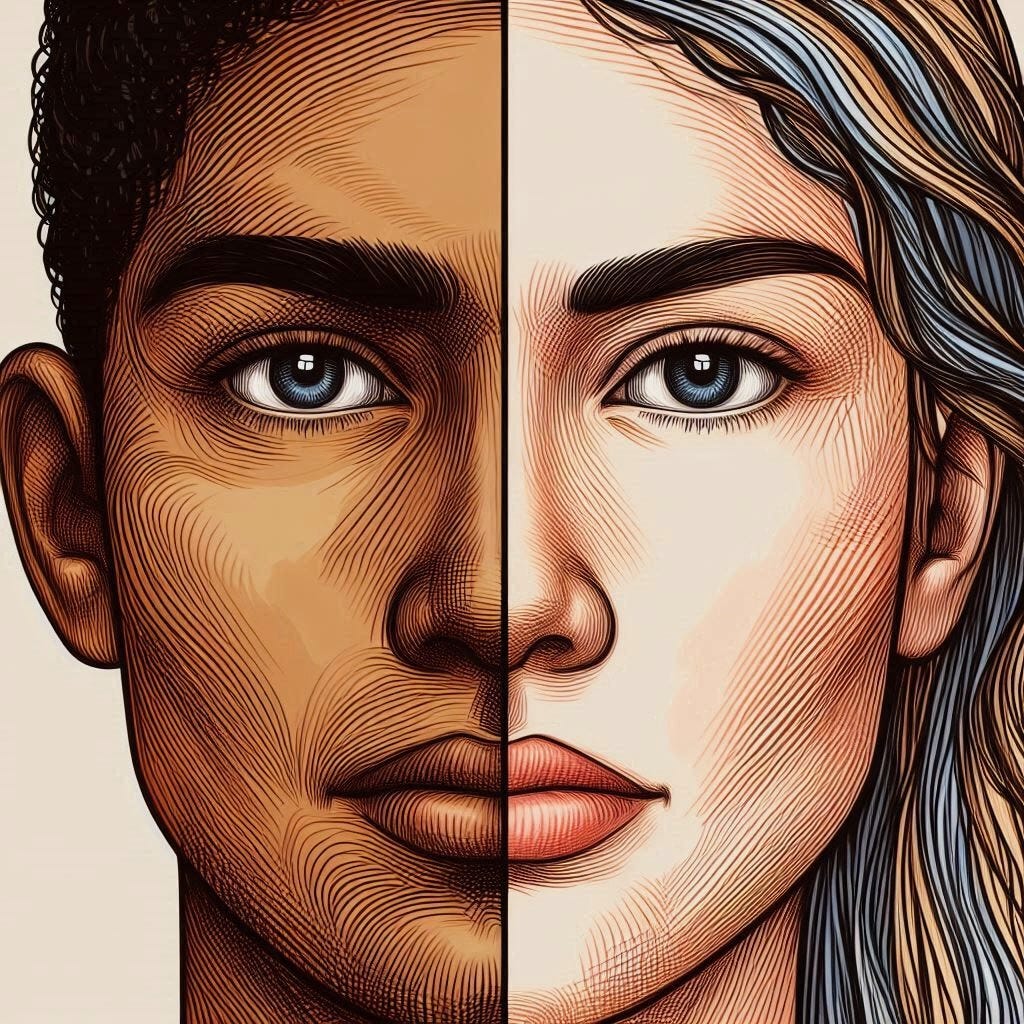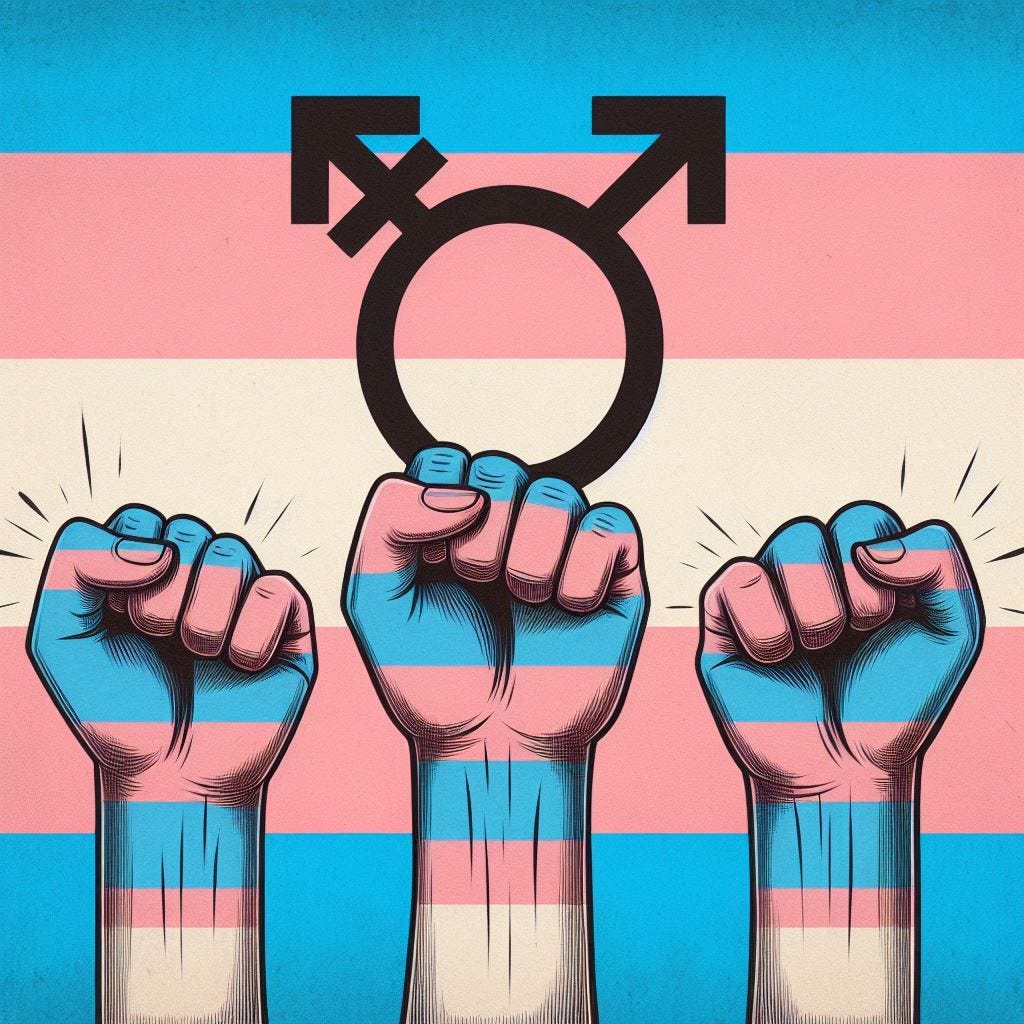Gender Theory: An Escape From Nature
Love your fate or hate yourself...
Note: This is part two of a series on gender theory. Part one examines its logical merits and flaws. You can read it here.
Transgenderism is not always inclusive.
In the Islamic Republic of Iran, transgender acceptance does not grow out of tolerance, but out of intolerance.
It is a form of homophobic conversion therapy. The Iranian government punishes homosexuality by death. Transgenderism, however, is still allowed.
When males show stereotypically feminine qualities (such as attraction to men) society encourages – or pressures them into – transitioning.
This demonstrates how sex transitions are not only a method of rebelling against stereotypes; they are also a method of enforcing them.
Gender dysphoria (GD) correlates with homosexuality. Individuals who first want to change genders but later desist, typically turn out to be “cis” gays and lesbians. The wish to fit in (by conforming to stereotypes) is potentially an underlying motivator.
Transgenderism, even in free societies, is sometimes a way to escape one’s true nature, rather than a way to live by it.
Sex stereotypes stem from biological sex.
This is why Matt Walsh’s documentary What Is a Woman? succeeded. He demonstrated that, without biological femaleness at its root, gender theorists have no definition of woman to fall back on. They have abandoned the essence of the word, and therefore can no longer define it.
If the term woman did not have a meaning to begin with, a transgender male could never identify as one.
He could identify with femininity, but that too is demonstrably rooted in biological femaleness - because what else could it be based on? A male may be innately more feminine than masculine. Hence, he may struggle to conform to sex stereotypes and wish to escape them, and others may even call him a woman.
Still, a transgender male remains a male.
According to gender theorists, identity and biology are unrelated. But, when a transgender male identifies as a woman, he uses a term inevitably rooted in biology. This demonstrates a logical problem:
E.
1. The gender of a transgender male is woman.
2. Womanhood is rooted in femininity.
3. Femininity is rooted in femaleness (or: the biological sex female).
4. Gender is not rooted in biological sex.
Statement E4 cannot be true.
If the gender of a transgender male is woman, and womanhood is rooted in femaleness, then gender must be rooted in biological sex.
This introduces another problem:
F.
1. A biological male cannot be a biological female.
2. A transgender male is a biological male.
3. Womanhood and femininity are rooted in femaleness.
4. A transgender male is fully a woman.
At best, the transgender male can become more feminine, or even subscribe to womanhood, but he may never be fully female.
He identifies with womanhood and femininity. But, both are rooted in femaleness. Through acting like one, he becomes more like one, but never precisely gets to be one.
Until we are free to change our chromosomes and gametes, a full sex change is impossible.
This is a predicament for transgender individuals. They may transition a long way, but never all the way. It leaves them somewhat androgynous: stuck in the middle.
Fundamentally, it is (human) nature they wish to escape.
Sadly, they cannot.
It is best not to think of tabula rasa (the conviction that humans have no innate qualities) as a fact, but instead as a desire.
Dr. Judith Butler too describes her theory of gender performativity as something that changes reality. Indeed, this is their wish. But, it is not within their power.
Since human abilities are limited, we can only change nature so much.
The feminine male has been dealt a difficult hand.
Stereotypes of masculinity constrain him. He cannot live up to society’s expectations, which is unfair. However, it is his true self’s mission to overcome such constraints.
He must accept his fate; not flee from it.
Self-love (through self-acceptance) is a precondition for psychological stability. The feminine male should grow his natural femininity. But, if he abandons his maleness altogether, he betrays himself.
There tragically is no escaping nature.
From the moment we are born, she both blesses and burdens us. Nature gifted us life, but will one day rob us of it. To triumph over this fate, we first must admit to the cruelty thereof.
This is the only way not to grow resentful.
It is summarized by the stoic phrase amor fati: love of fate. Life torments humans unjustly. But, cursing our fate provides no way forward; accepting it does.
It is precisely this task that John Money – the inventor of gender according to some – failed.
He pretended to be a wise intellectual but was truly a troubled soul. Money sexually abused the Reimer twins: two children he studied. He also resented his biological sex, because of the trauma inflicted by his alcoholic father.
Money wrote:
“My father died without my being able to forget or forgive his unfair cruelty.”
“I suffered from the guilt of being male.”
“I wore the mark of man’s vile sexuality.”
And, foreshadowing our modern era:
“I wondered if the world might really be a better place for women if not only farm animals but human males also were gelded [castrated] at birth.”
The founder of gender theory resented his biological sex.
Gender-critical psychiatrist Miriam Grossman suspects that this – either consciously or subconsciously – drove Money’s work. He wished sex were separate from gender because it would allow him to escape his own. Money divorced the two concepts in an attempt to divorce himself from his pain.
If this is true, then gender theory was founded on trauma.
Tabula rasa permeates the field because it would allow for an escape of human nature: specifically its most painful elements. This was likely Money’s true intention. Gender theorists, his successors, do not wish to embrace the nature of sex; they wish to liberate themselves from it.
Alas, because we cannot unshackle ourselves from nature, they cannot find such freedom.
The Swiss psychiatrist Carl G. Jung described nature as the motherly force through which humans are brought into existence. Because of her chaotic nature, we cannot control all the conditions thereof. Still, hating her will only make it worse.
If you detest your biological sex, then you fail to love your fate.
You will hate your nature, and therefore yourself. Denying your situation only worsens it. Denying your trauma only emboldens it.
This is where the taboo of the deadname comes from.
Once transgender individuals deny their biological sex, they deny a part of themselves. The deadname is a reminder of something they are trying to forget. When triggered, it elicits hostility.
We may be polite and avoid deadnaming, but nature remains unbothered; she persists in every cell.
Either you learn to love your fate, or you are doomed to hate yourself.








